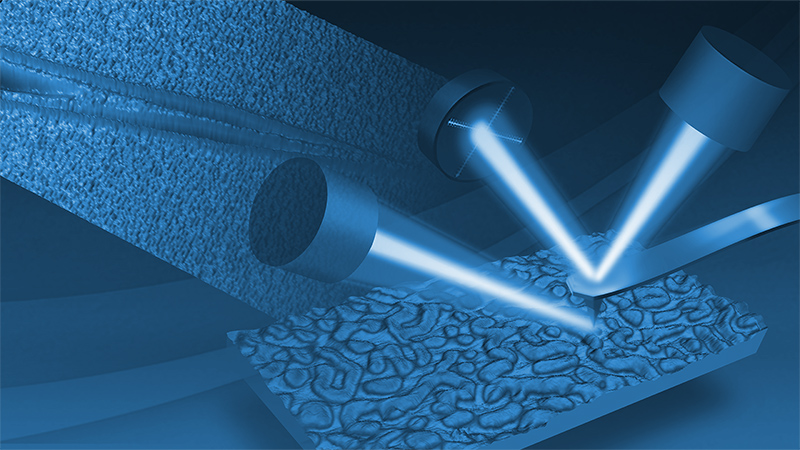

Advanced Nanoscale Chemical Analysis using Photothermal AFM-IR & Correlated Mapping of Mechanical and Electrical Properties
Discover how to correlate photothermal AFM-IR results with mechanical and electrical property data
Photothermal AFM-IR spectroscopy combines the high spatial resolution of atomic force microscopy (AFM) with the chemical identification capability of infrared (IR) spectroscopy to allow for the chemical characterization of samples in nanoscale detail.
Using simultaneous and co-localized analysis, AFM-IR results can be correlated with mechanical and electrical property data for a more complete understanding of materials. This webinar shows real-world examples of correlated AFM-IR analyses and covers practical aspects of co-localized analysis including probe choice and parameter settings.
Webinar Summary
Atomic Force Microscopy (AFM) is a multiparametric imaging technique that characterizes the nanoscale properties of advanced materials. Nanoscale IR spectroscopy identifies and quantifies the chemical composition and structure of materials ranging from biological matter to polymers, 2D materials, and micro-electronics. Combining these techniques in Photothermal AFM-IR spectroscopy enables multimodal analysis and correlation of nanoscale topographical, mechanical, electrical, and chemical properties, allowing the rapid, non-destructive, and comprehensive investigation of material properties.
In this webinar, Bruker experts illustrate the capabilities of the photothermal AFM-IR technique using Dimension IconIR. They show how multiple AFM techniques and modes can be correlated at the nanometer level, including:
- Photothermal AFM-IR—chemical properties
- PeakForce quantitative nanomechanical mapping (PeakForce QNM) —adhesion, modulus, indentation
- AFM-based nanoscale dynamic mechanical analysis (AFM-nDMA)—viscoelastic properties such as loss tangent)
- Kelvin probe force microscopy (KPFM)—surface potential, dielectric properties
Presenters also show real-world industrial samples such as:
- Polystyrene–low-density polyethylene (PS–LDPE) multi-component polymer
- Styrene–butadiene rubber (SBR) with carbon black additives for car tires
- Lithium-ion battery electrodes
Additionally, they cover practical aspects of AFM-IR correlative analysis such as optimal probe selection and parameter settings.
Find out more about the technology featured in this webinar or our other solutions for Nanoscale Chemical Analysis:
Featured Products and Technology
Speakers
Hartmut Stadler, Ph.D.
Applications Engineer, Bruker Nano GmbH
Chunzeng Li, Ph.D., Applications Engineer, Bruker



